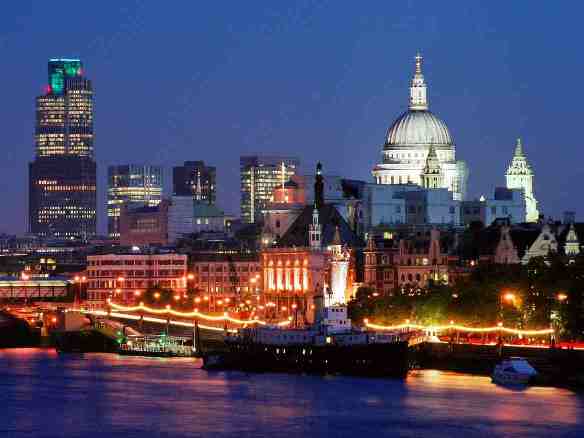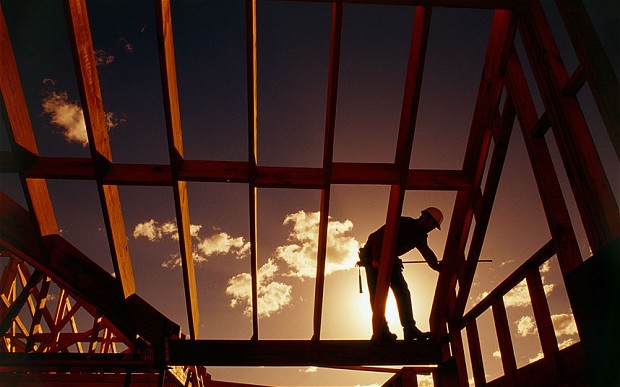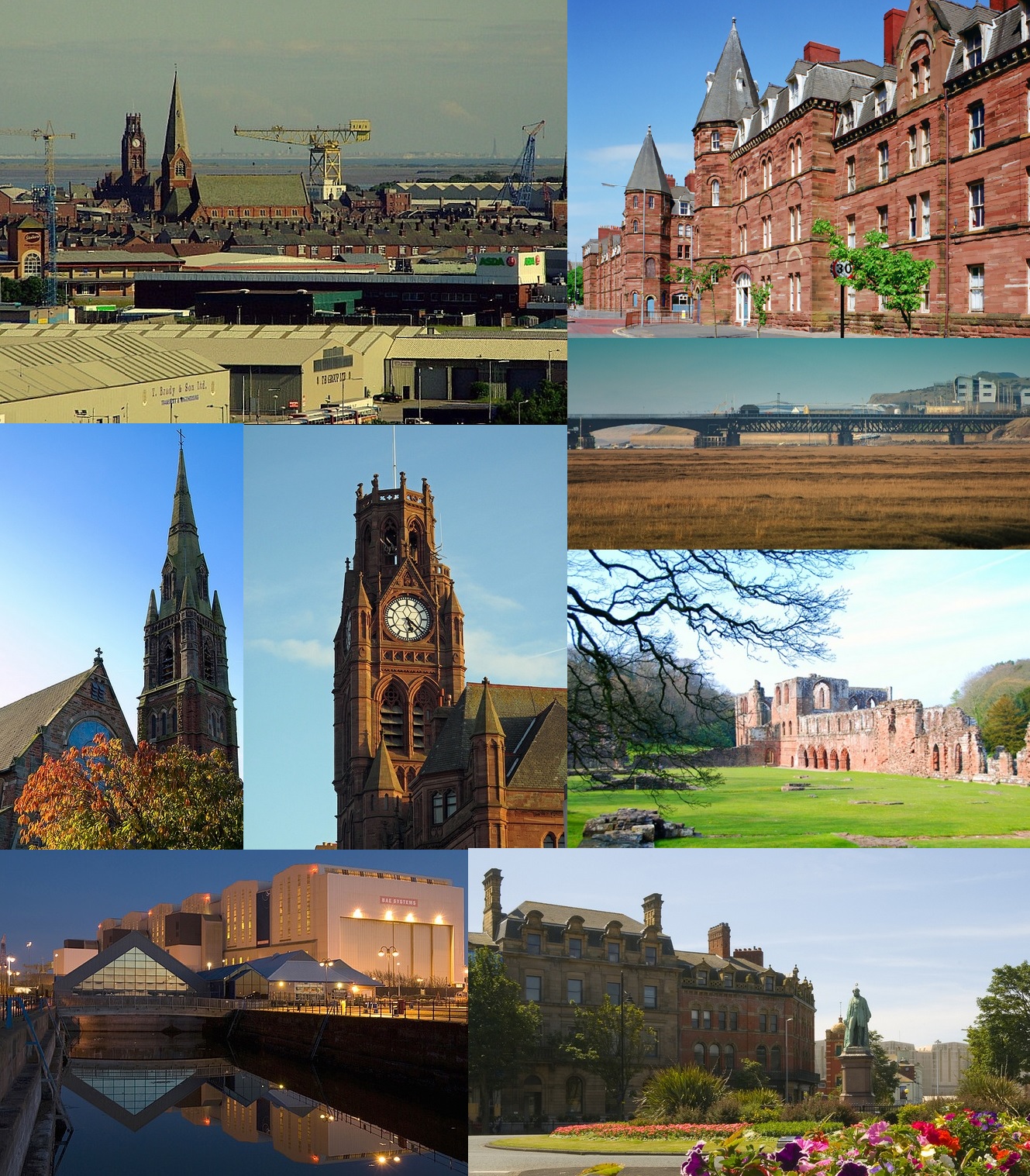586: UK Property Investors Update
12-04-2016

Draconian Taxes: The recent draconian tax assault on residential buy-to-let businesses has left many property investor deeply sceptical that this business can make a reasonable profit under the harsh conditions. Its certainly destroyed the conventional business model of borrowing at high leverage to invest in multiple properties. Many investors are voting with their feet by selling down their portfolio something that will of course worsen the crisis in the housing sector particularly the rental sector in London and SE England. It will also drive rents higher in just the sort of areas that have least rental properties like London and SE England. The unintended consequence of a truly mind-blowingly stupid tax. Hard working people building a property business and providing a serve are being treated like armchair investors. The tax grab from a Tory government of all things is frankly wrong, hard to understand and an assault on small businesses and the very entrepreneurial behaviours most people thought a Tory government would have supported.
The outcome and options for people with large leveraged portfolios are the following:
1. Increase rents to pay for the new doubling of the government tax take for the average property this would be around 10% or £100 a month in SE England.
2. Increase the number of rental units per property in accordance with regulations of c ourse e.g. convert houses to flats, and houses to homes of multiple occupancy in order to increase income to pay for the new taxes
ourse e.g. convert houses to flats, and houses to homes of multiple occupancy in order to increase income to pay for the new taxes
3. Reduce borrowing by selling down around half your portfolio to avoid most of the excesses of the tax increases
4. Roll properties into a limited property company not something we would recommend in view of its cost, complexity, additional accounting and paperwork and time plus capital gains tax liabilities and stamp duty costs within the transfer
5. Sell up all your portfolio monetise and get out of the business that taxes losses and has become largely uneconomic
6. Switch to different types of property businesses
Recommendations: We would certainly recommend implementing at least part of 1 and 2, possibly considering 3 if you feel like you will struggle and dont see house prices rising in future. We would not recommend 4 also because the government may then switch to taxing business to catch these people out. Anyone approaching say 60 years old and with no offspring that are interested in taking over the businesses may consider 5. We want now to focus on 6 since there are still some options left albeit please note the government may attack these alternatives soon.
Accidental Making of Serious Money: Its probably true to say that the vast majority of British people have only ever made serious money from property. Most of these people did it almost be mistake not really planning to. They bought a home and the price went ballistic then they realised after that had paid off their mortgage just how much equity they had made. One could argue everyone understands the benefits of owning their own property but  years ago the average person living in a 3 bedroomed house in Fulham never believed it would be worth anything like £1.2 million by 2016. Instead they viewed it as a home, not an investment or equity. Try finding anyone that has made £1 million from investing in stocks and shares, or building a business that is not in property. Its almost impossible. In stocks and shares, you need to beat the market be a stellar star performer. In business, you need to work for years and take monumental risk to build a valuable income generating business then sell this for say £1 million. With a price to earnings ratio of 5 for a small business, this would need profits generated of £200,000 a year a very tall order. Hence the focus shifts back to property investment again despite the draconian residential buy-to-let taxes and assault by the government. So what are the other options?
years ago the average person living in a 3 bedroomed house in Fulham never believed it would be worth anything like £1.2 million by 2016. Instead they viewed it as a home, not an investment or equity. Try finding anyone that has made £1 million from investing in stocks and shares, or building a business that is not in property. Its almost impossible. In stocks and shares, you need to beat the market be a stellar star performer. In business, you need to work for years and take monumental risk to build a valuable income generating business then sell this for say £1 million. With a price to earnings ratio of 5 for a small business, this would need profits generated of £200,000 a year a very tall order. Hence the focus shifts back to property investment again despite the draconian residential buy-to-let taxes and assault by the government. So what are the other options?
Add value: Firstly when investing in property the main tenet is to add value. You dont have to rent out a property to do this of course. In fact, a bad tenant that ruins your property will destroy value even if they pay their rent. What we are getting at here is to do property development never have tenants and buy, do up then sell properties.
Because of the high stamp duty taxes and high capital gains taxes that were introduced in the last ten years, its become far more difficult. But we want to highlight that it is still possible 0 whilst taking a risk in a rising property market particularly to make a significant profits from development. We will give a few examples.
Fix Up a Property: You may not realise that some property are sold at a huge discount because of certain small faults that can lead to you making some pretty serious profits.
· Smoke stain properties 10% discount
· Graffiti on the property or close by 10% discount
· Repossession with some peripheral-superficial minor damage 15% discount
· On a busy road 15% discount
· Without a garage or car port 10% discount
· Some has just died in the house 10% discount
· Old fittings and gory paintwork 15% discount
As long as the market is not too heating, particularly if you have cash, you can purchase run down properties for a pretty steep discount lets say they are smoke stain, smelly, old interior, someone has just died in the property and it is also a repossession with graffiti outside you may get it for 35% discount and all it needs is a free paint job, new kitchen and bathroom. You could get this work done in 4 weeks then flip it sell it on for a significant profit. You need to get friendly with estate agents and described exactly what you are looking for so when one pop up they call you first. You need to ask for dirty smoke stain drab flats and houses in need of total makeover.
Conversions: Another excellent way to add value to a property is to buy a house with an unconverted loft and unconverted basement-cellar. In London, its possible if you get the right builder to do a basement conversion for around £80,000 and a loft conversion for something like £40,000. You will need to find the right low cost but high quality builder though that you can trust and thats never easy for most people. Basement conversion are of course quite risky in that if they cause cracks in neighbouring properties, compensation claim will be immense and could topple your business. Its so important to do basement conversions properly by a building that does not cut corners and knows what they are doing. Again, not easy to find such a builder that is also low cost. You might find it costs £120,000 then the flat is only worth £160,000 and you have hardly made any equity and taken a huge risk. You should only really go ahead with a conversion if the basic numbers imply a doubling of value verses expenditure to lower your risk levels. Loft conversions are generally lower risk, but again, they need to be done property. Floors will need strengthening and the roof also needs proper joists and strengthening all these works need to comply with building regulations again, you need to be able to trust your builder. The good news is that, in London, if you have a large loft for conversion into a one bedroomed flat or studio, you might be able to do this for £50,000 then sell kit for £200,000. Buying a large terrace house in southern England for say £500,000 with 4 bedrooms, an unconverted loft and an unconverted basement could yield the following
-
Split house into two flats (costing £30,000 each) new value £200,000 each
-
Convert basement for £80,000 value at £180,000
-
Convert loft for £50,000 valued at £165,000
-
Total costs - £30k + £30k + £50k + £80k = £190k
-
Total new value - £200k + £200k + £165k + £180k = £765k
Hence your profit before tax is £265k, on a cost of £190k. Obviously if you have big cost overruns or you were far too optimistic or unrealistic with you costing, it could eat up your profits. And any profits are of course subject to 28% capital gains tax to dampen your enthusiasm. But if you have a large smoke stained house with graffiti someone has died and doody interior may be you can purchase this house for well under £500k and your profit would rise significantly.
Self Build: Another idea is a self build project. Lets say you buy a plot of land for £60k, manage to build a nice 3 bedroom detached house for £130k and you then sell for £250k thats a profit of £60k. Not massive, and its certainly a risk, but if your project goes to plan, it could be worthwhile. If you can do a lot of the work yourself, costs will go down as long as quality stays high your profits would rise. The other idea is for three builder to club together to build three houses and each builder has a speciality so in their spare time, they work on each others homes therefore the labour cost is its zero and its only the materials that cost. This would reduce the overall building costs by half. So a plot of land would still cost £60k, but instead of the property costing £130k to build, it would only cost £65k and be worth £250k hence a healthy profit before capital gains tax of £125k on a total investment of £125k. Thats a 100% rate or return before tax. If you lived in the property yourself, then no capital gains tax would be payable and your equity value would be £125k. Not bad for about a years worth of part time (out of hours) effort if you are a carpenter, or bricky, or plasterer, or may be an electrician/plumber.
of £60k. Not massive, and its certainly a risk, but if your project goes to plan, it could be worthwhile. If you can do a lot of the work yourself, costs will go down as long as quality stays high your profits would rise. The other idea is for three builder to club together to build three houses and each builder has a speciality so in their spare time, they work on each others homes therefore the labour cost is its zero and its only the materials that cost. This would reduce the overall building costs by half. So a plot of land would still cost £60k, but instead of the property costing £130k to build, it would only cost £65k and be worth £250k hence a healthy profit before capital gains tax of £125k on a total investment of £125k. Thats a 100% rate or return before tax. If you lived in the property yourself, then no capital gains tax would be payable and your equity value would be £125k. Not bad for about a years worth of part time (out of hours) effort if you are a carpenter, or bricky, or plasterer, or may be an electrician/plumber.
Investment Opportunities: Regrettably we are drying up with regards to ideas in this current environment. Its very difficult to make buy-to-let work as a sustainable cash generating business these days. The government treat it like a paper investment when it is a business service requiring hard work to deliver the service. The dont seem to like middle class people making serious money anymore it seems any quest to have earnings higher than the Prime Ministers at £150,000 a year is met with a barrage of taxes to put people back in their place in this control society we live in. For those with offspring in the age group 18-25, the best investment would be to buy each a property under their name four bedroom terrace houses and have three rooms let out separately to lodgers. The tax threshold for your kids would be around £11000 before they would need to pay a penny tax on the lodger income. The lodger income would be more than enough to pay for the mortgage and then asset prices should continue to rise. So you would be giving your offspring a kick-start in life and avoiding the tax man penalising yo
u further.
Holiday Lets: The other angle is holiday lets either in popular all year round coastal areas or in London. Its hard work and you would need to be organised but holiday lets have a far lower taxation than normal residential lets now that the government are implementing their draconian taxes on residential lettings. This is of course pretty ridiculous but again the unintended consequence of a stupid tax hike on the long term residential letting sector it will worsen the housing crisis of course. More people will switch to holiday lets in London where the crisis is most acute.
Rich Get Richer: The overall economic trend continues to be the rich will get richer and the poor will get poorer as wages fail to keep pace with inflation, particularly now Sterling has declined 20% against the dollar and Euro. This should support asset prices in the UK in Sterling terms particularly in London- that will seem 20% cheaper for overseas investors. To prevent getting wiped out by inflation, one really needs to own physical assets as we have been advising for 11 years now. Longer term we see property continuing to rise in price as more money is printed, Sterling declines and the population expands. However, we are likely to see a further north south divide opening up particularly with the Tories in power with the expectation they will stay in power for many years since Labour are in such disarray.
Lets take a look at two contrasting areas for some clues as to whether property prices will rise or not London versus Barrow-in-Furness in Cumbria:
London
· Population booming by 100,000 or 1% a year
· Young population of highly educated individuals
· Global centre for financial services, business and high technology
· Cultural centre, theatre, cafes, restaurants, tourist attractions
· Best schools and Universities in the country within a 50 mile radius
· Internationally diverse population
· High fertility rate
· Low building levels 25,000 per year compared to demand 75,000 per year
· Relatively small public sector when compared to private sector
· Highly efficient private sector per capita GDP very high
· Large inward migration of well-educated motived international young people
Barrow-in-Furness
· Population declining by 1.5% a year depopulation
· Old population of poorly educated individuals
· No famous for any business declining manufacturing, fishing and docks
· No cultural interest centre, no theatre, poor cafes, no good restaurants, no tourism
· Some of the worst schools in the country no University close by
· Non-diverse local population
· Very low fertility rate
· Adequate though very low building levels in view of depopulation
· High public sector jobs percentage in terminal decline
· Small inefficient private sector very low per capita GDP
· Outward migration of well-educated motived local young people
Best Investment - Growing Area: Even though London property prices are very high compared to Barrow-in-Furness, in a 5-20 year time frame, you should not bet on asset prices outperforming London property prices. Rental yields in Barrow might be high, but many will be on social security, and you would have all the problems of tenants who do not work, some might prefer to spend their social security money on booze (or food) than pay their rent to a Landlord and spend all day in the property increase its wear and tear. Many properties will stay empty because of depopulation and lack of employment.
Overall its always best to focus rental business in area with strong growing employment prospects, expanding population, housing shortages, low building levels and high demand. London ticks all of these boxes. Despite Brexit we see London growth remaining high for many decades barring either a massive financial crisis or war.
We hope this Newsletter has given you some insights into the current business environment and trends that might help you select a good property investment. If you have any queries, please contact us on enquiries@propertyinvesting.net

